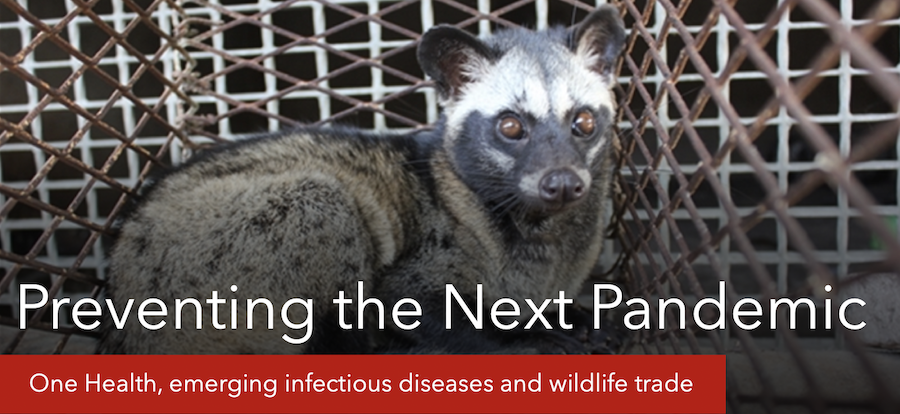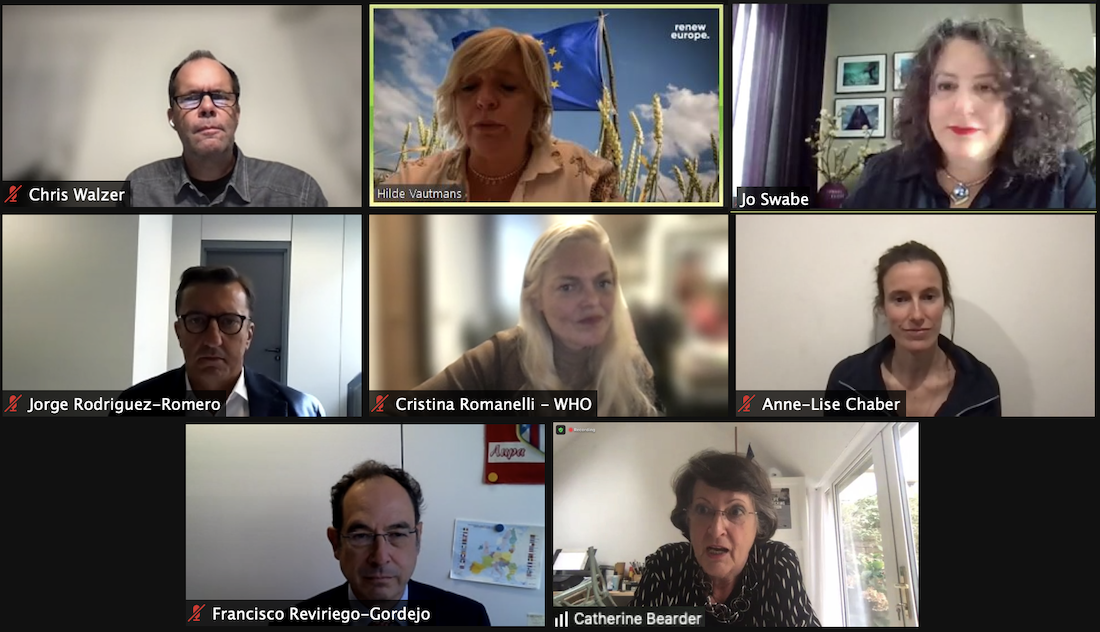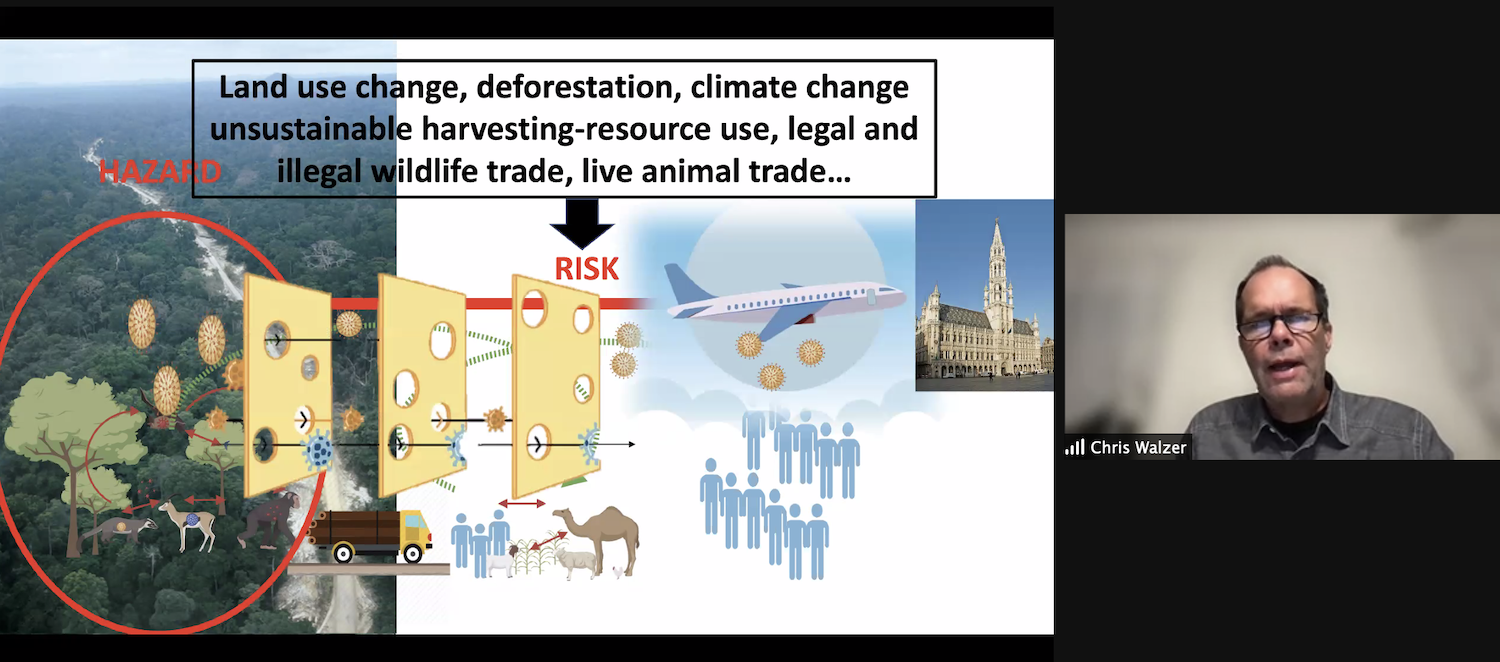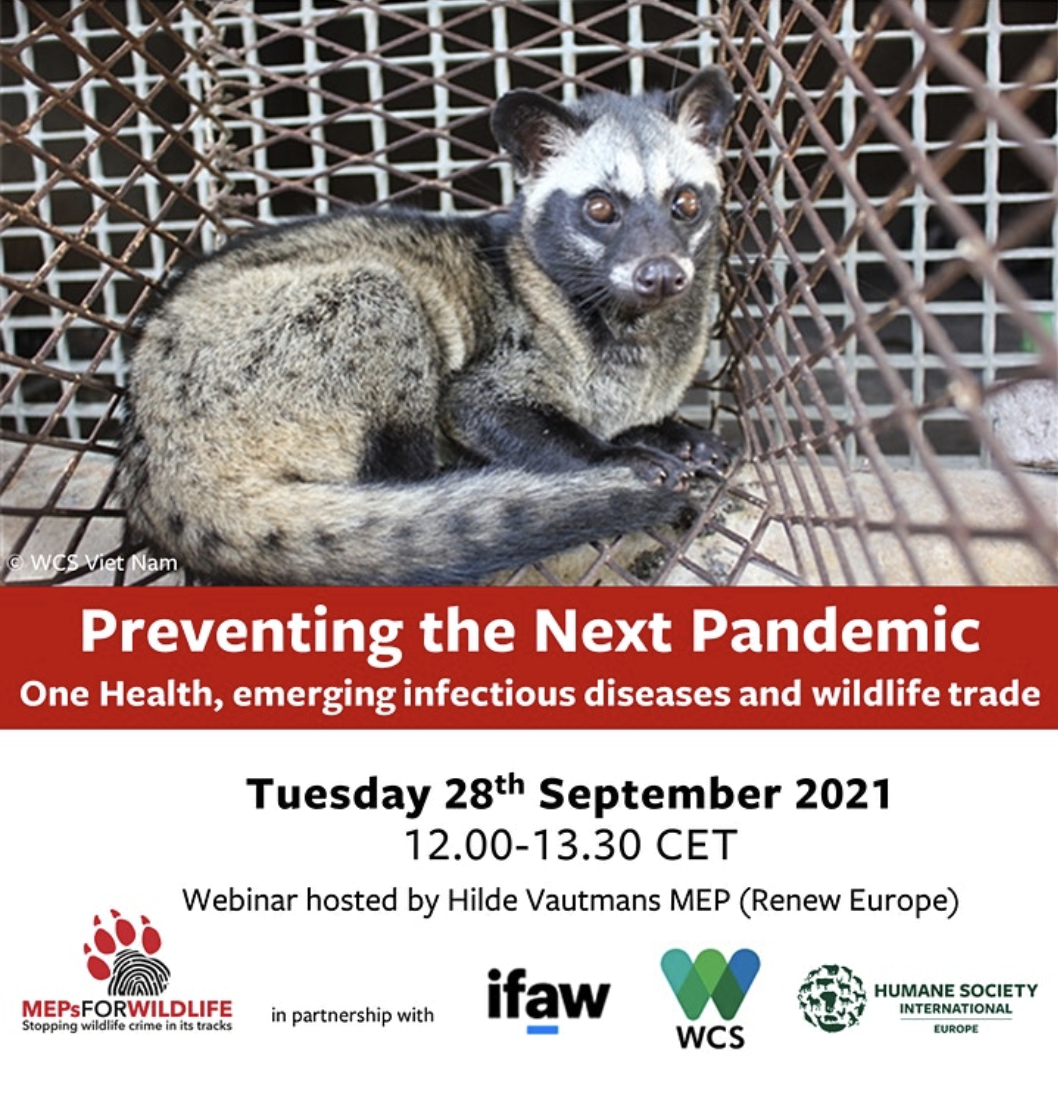
Preventing the Next Pandemic: One Health, emerging infectious diseases and wildlife trade
On 28th September 2021, the MEPs for Wildlife, a cross-party interest group at the European Parliament, organized a webinar titled 'Preventing the Next Pandemic: One Health, emerging infectious diseases and wildlife trade', in partnership with WCS EU, Humane Society International/Europe (HSI) and the International Fund for Animal Welfare (IFAW) .
Wildlife around the globe is under intense pressure from human activity and over-exploitation. Illegal and unsustainable wildlife trade, poor governance, and corruption have significant negative impacts on ecosystems and the loss of multiple wild species, affecting the integrity of whole ecosystems, contributing to climate change, and negatively impacting local livelihoods, economic development, and security.
The current COVID-19 pandemic and other disease outbreaks of zoonotic origin such as SARS and Ebola clearly demonstrate the critical need to apply a truly trans-sectoral One Health approach, as a matter of urgency. Efforts must be focused on preventing pandemics of zoonotic origin at their source – in other words, stopping them at the point of spillover of pathogens from animals to humans, well before they can become local outbreaks, epidemics, or global pandemics.
To have a meaningful impact on significant reduction of the risk of future pandemics of zoonotic origin, all efforts must be made to prevent the pathogen spillover in the first place. This means, first, protecting intact ecosystems and stopping deforestation and forest degradation to limit the human-wildlife interface. Second, seriously looking into the wildlife trade and consumption. The focus should not be on illegal wildlife trade, but on wildlife trade as a whole, both legal and illegal. There is no evidence that the risk of pathogen spillover is exclusively related to illegally obtained animals. A virus is indeed indifferent to whether an animal in a market was obtained legally or not.
Speakers discussed the on-the-ground impact of markets for live wildlife, particularly for human consumption, and associated wildlife trade (either from the wild or breeding facilities), the links to biodiversity, climate, security, and health and how to address these threats through an integrated One Health approach.

Globally, more than 335 Emerging Infectious Disease (EID) outbreaks, involving 183 distinct pathogens, were reported between 1940-2004. That’s more than 50 outbreaks per decade, and the rate is increasing. More than half (52%) of all EID events in recent years originated in wildlife. Among emerging zoonoses specifically, 72% of outbreaks have originated in wildlife with the rest emerging from domestic animals, explained Prof. Dr. Chris Walzer, Executive Director, Health Program, Wildlife Conservation Society (WCS).
SARS-CoV-2 is the ninth documented coronavirus that infects humans and the seventh identified in the last 20 years .
Emerging zoonoses have significant implications for both public health and economic stability with the costs of many individual recent major outbreaks such as SARS, MERS and Ebola estimated in the tens of billions of US dollars. These costs exceed 1-2% of GDP in less wealthy countries and surpass the International Monetary Fund’s threshold (0.5% GDP loss) for major economic disasters.
For more information, visit wcs.org/coronavirus
 Prof. Dr. Chris Walzer, Executive Director, Health Program, Wildlife Conservation Society (WCS), presenting during the webinar
Prof. Dr. Chris Walzer, Executive Director, Health Program, Wildlife Conservation Society (WCS), presenting during the webinar
Host
Ms. Hilde Vautmans, Member of the European Parliament and Chair of MEPs for Wildlife
Presentation
Prof. Dr. Chris Walzer, Executive Director, Health Program, Wildlife Conservation Society (WCS)
Panel
- Mr. Jorge Rodriguez Romero, Deputy Head of Unit, Multilateral Environmental Cooperation, DG Environment
- Dr. Francisco Javier Reviriego Gordejo, Head of Unit for Animal Health, DG SANTE
- Dr. Anne-Lise Chaber, One Health expert, School of Animal and Veterinary Science, University of Adelaide
- Ms. Cristina Romanelli, Programme Officer for Biodiversity, Climate Change and Health, World Health Organization (WHO)
Moderator
Dr. Joanna Swabe, Senior Director of Public Affairs, HSI/Europe
